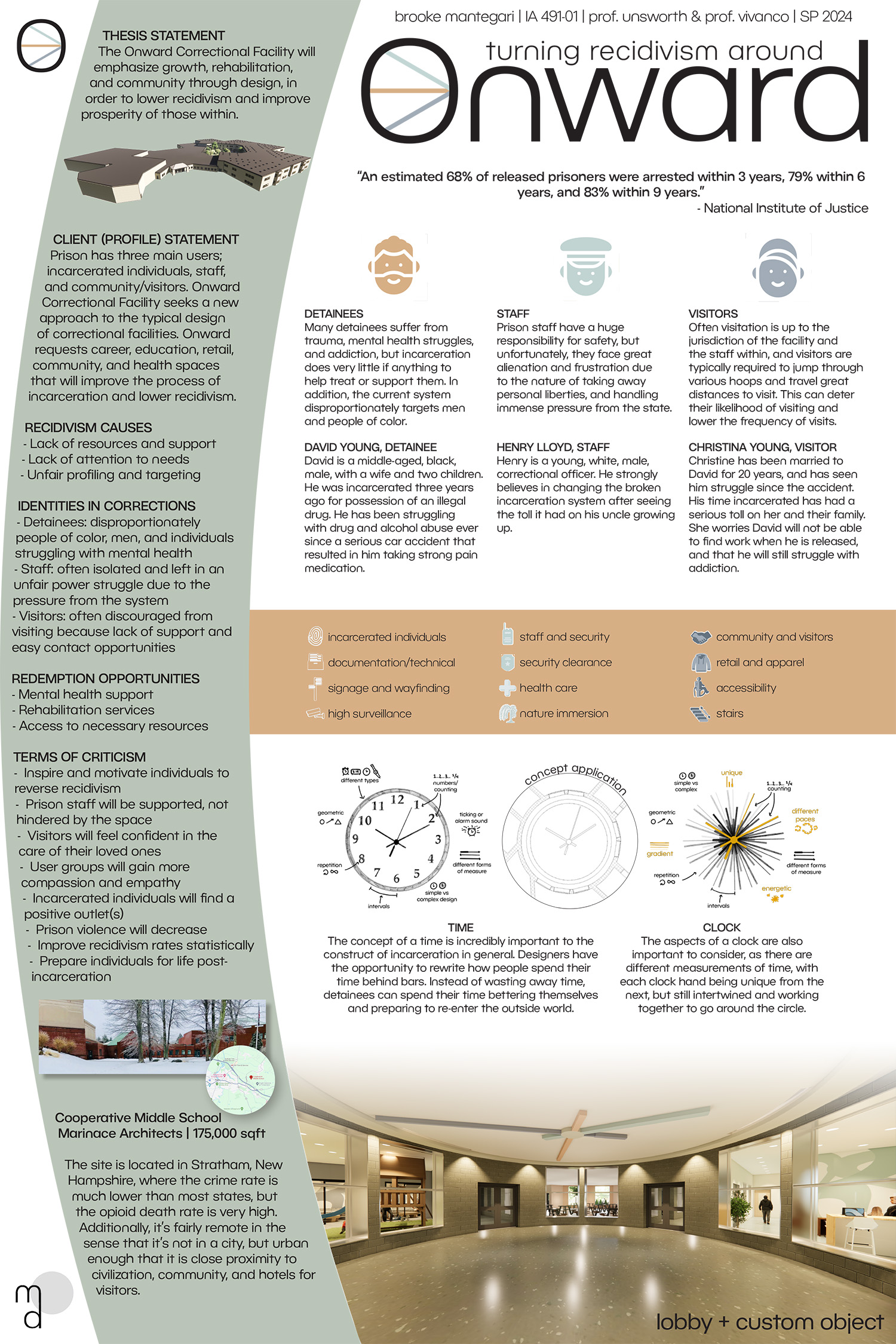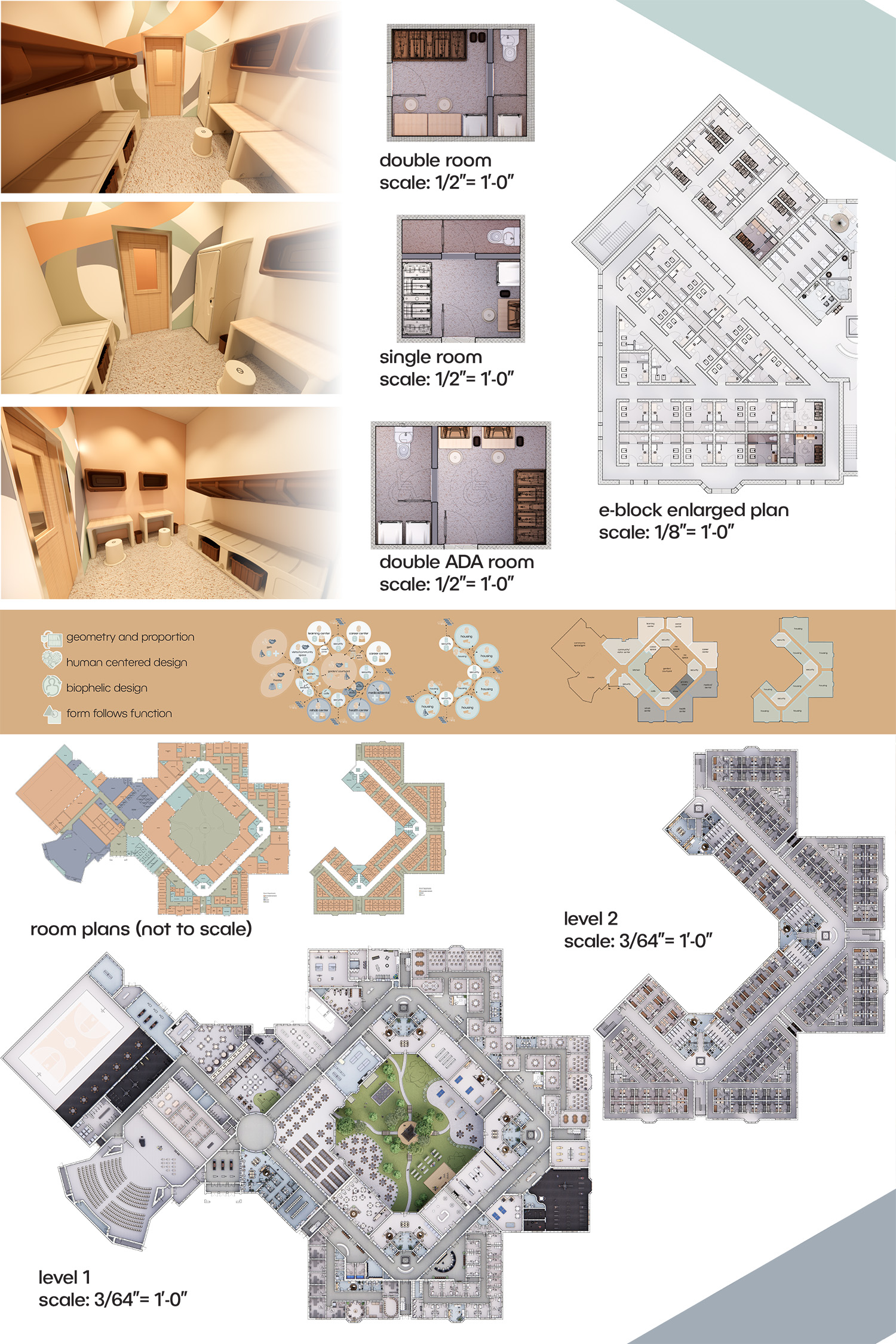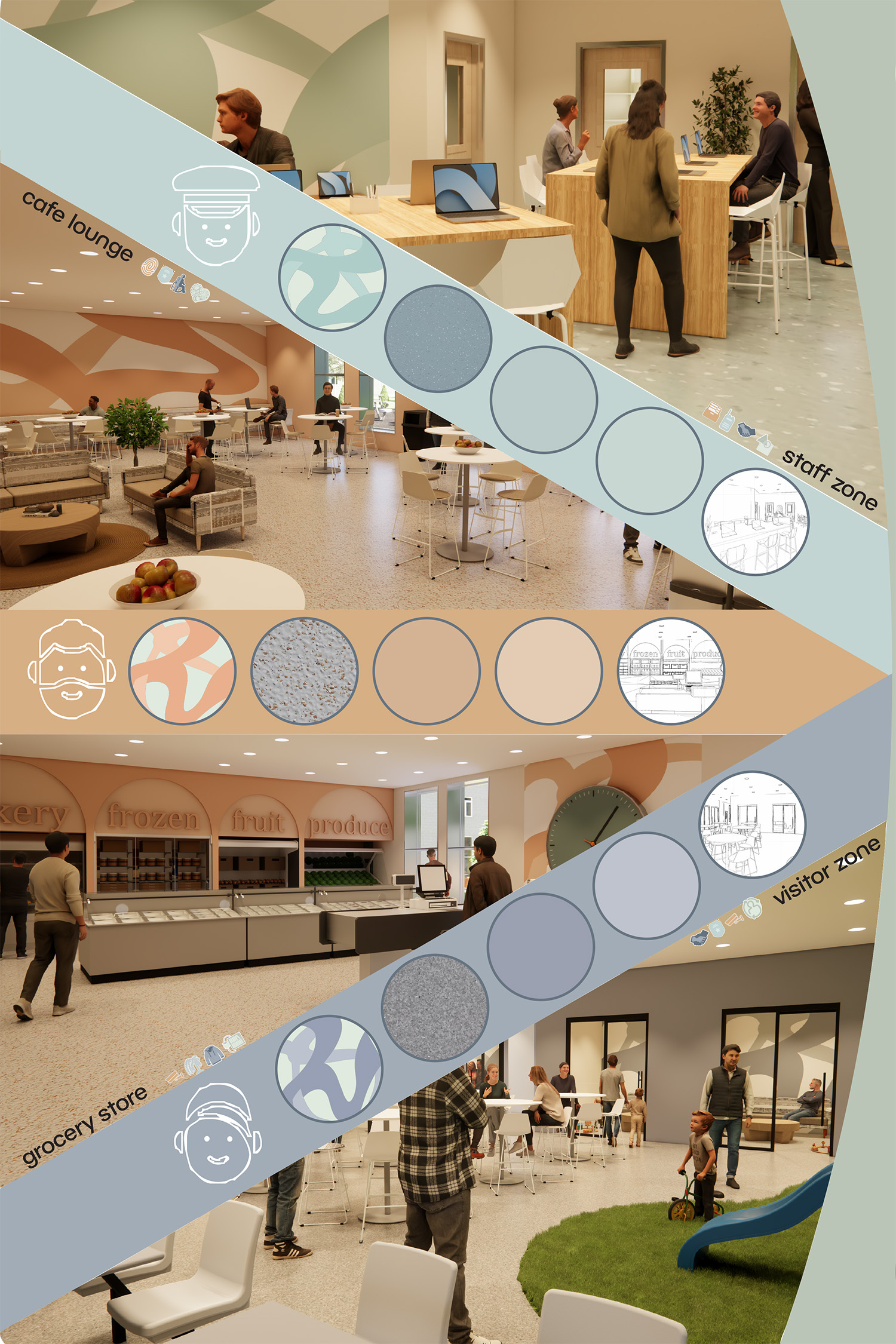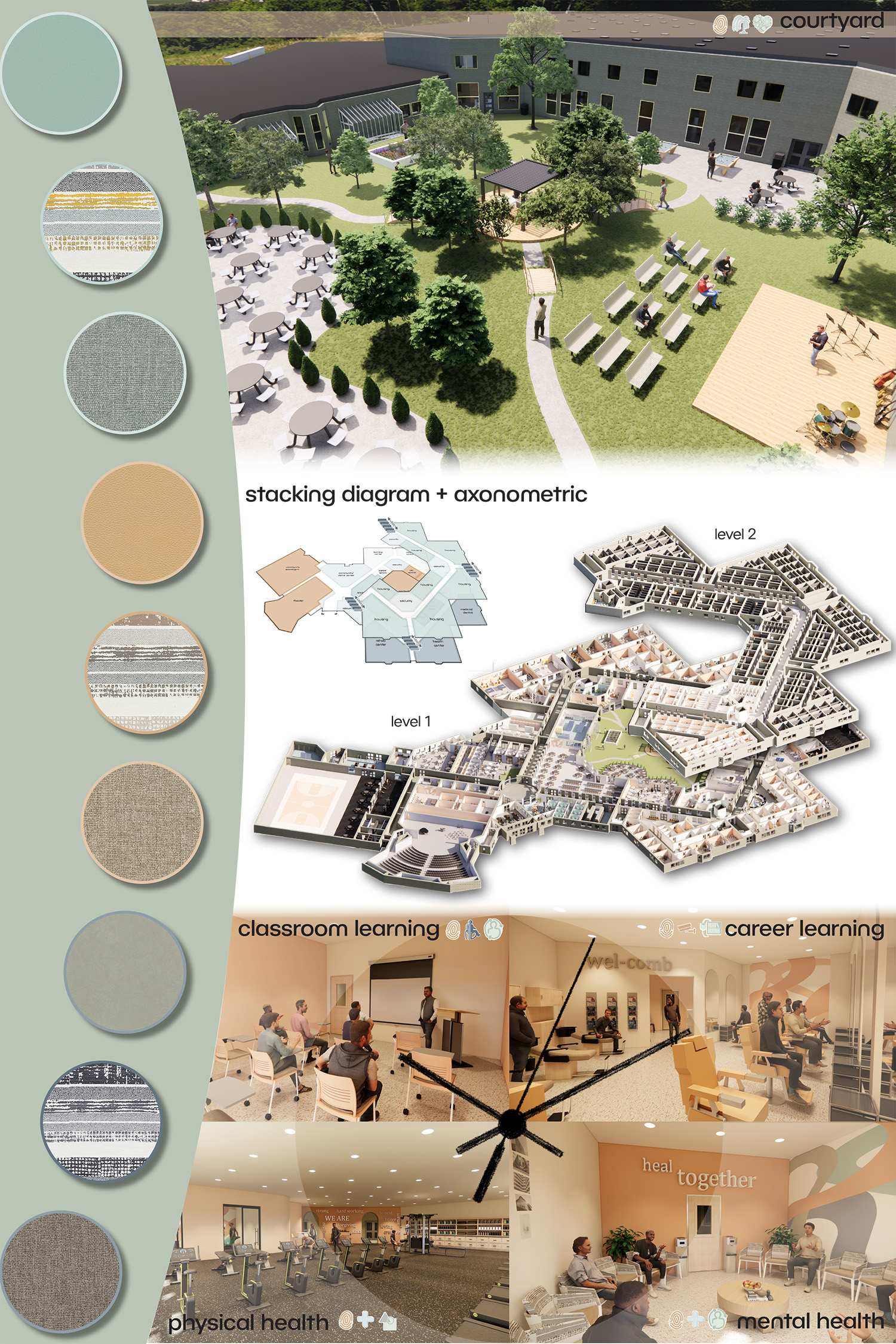Artist Biography
Brooke Mantegari will graduate from Endicott College in the spring of 2024 with a BFA in Interior Architecture. During her time at Endicott, she has been recognized for her academic achievements such as earning a spot on the Dean’s List each semester and being chosen for project exhibitions. In the fall of her junior year, Brooke took the opportunity to travel Europe and study abroad in Florence, Italy where she was able to see firsthand the historic architecture she had studied and adored. Eager to learn more about the various avenues that design has to offer, Brooke completed three internships, each with a different focus. Her first internship was with a residential design firm, her second specialized in commercial retail design, and her most recent was focused primarily in healthcare design. Brooke has been passionate and enveloped in design for as long as she can remember, always eager to find creative solutions that make a difference. She looks forward to pursuing her Master’s Degree in Interior Architecture at Endicott College in the fall of 2024 and then hopes to continue her efforts in making a difference through the power of design.
LinkedIn: www.linkedin.com/in/brookemantegari
Thesis Abstract
The United States is a country founded on opportunity and new beginnings but the justice system does not represent that. While the purpose of incarceration is to serve time for the wrongdoings someone has done, it discourages learning from those wrongs and unfortunately, often leads to reoffending. Because of this, the U.S. has the highest recidivism rate in the world (which The National Institute of Justice defines as “a person’s relapse into criminal behavior, often after the person receives sanctions or undergoes intervention for a previous crime”). Onward Correctional Facility strives to change this statistic by providing a new approach to the typical design of correctional facilities. Incorporated career, education, retail, community, and health spaces geared to support the three main user groups; incarcerated individuals, staff, and visitors, will result in lower recidivism rates and an improved tomorrow for those impacted by the correctional system.




